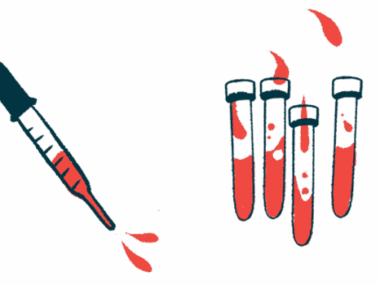Too Many Patients Feel Unprepared for Recovery After Surgery
Written by |

Many patients with Cushing’s syndrome felt unprepared for the recovery phase following curative surgery, a survey study has found.
The recovery time was considerably longer than expected and about 32% of patients denied receiving enough information from their healthcare providers.
Survey findings also suggested that increasing communication between physicians and patients, and a better understanding of patients’ needs, could improve health-related quality of life during post-surgery recovery.
The study, “Patient and provider perspectives on post-surgical recovery of Cushing’s syndrome,” was published the Journal of the Endocrine Society.
Cushing’s syndrome is a condition characterized by the excessive production of the hormone cortisol. In cases where the condition is caused by an underlying tumor, physicians may recommend patients undergo tumor removal surgery.
Health-related quality of life is low in people with Cushing’s, and it remains low even after surgery. Some of the causes include a delay in diagnosis and lack of information regarding therapies and recovery.
According to this study’s authors, understanding patients’ and physicians’ perspectives on the post-surgical recovery phase is key to improving health-related quality of life during Cushing’s remission.
“To our knowledge, no data exists on providers’ opinions of or approaches to [Cushing’s syndrome] recovery,” they wrote.
To tackle these questions, researchers developed two web-based surveys that were based on responses from a previous open-ended survey directed only to Cushing’s patients. One of them was meant for members of the Cushing’s Support and Research Foundation who had undergone surgery, while the other was directed to endocrinologists who treated patients with Cushing’s. Participants’ responses were collected from December 2010 to November 2011.
A total of 341 patients and 54 physicians were included in the analyses.
Most patients were women (91.5%), with a median age of 43 years. The majority (69%) had Cushing’s disease, a type of Cushing’s syndrome caused by a tumor in the brain’s pituitary gland. About a third (27%) had Cushing’s syndrome caused by a tumor in the adrenal glands, which are responsible for cortisol production, and in 13 (3.8%) the disease had been attributed to other causes or its triggering factors were unknown.
Of the endocrinologists who completed the survey, 10 practiced in the U.S., three in the U.K., three in Italy, and 10 elsewhere. They reported seeing a median of 100 surgically-treated Cushing’s patients over the course of their careers.
Patients with Cushing’s disease reported taking cortisol replacement medication for a shorter period than patients with Cushing’s caused by adrenal tumors (six months vs. 12 months). Hydrocortisone taper was the most commonly prescribed replacement medication (64.8%), followed by prednisone (20.4%), and cortisone acetate (9.3%), as reported by physicians.
Most patients (54.1%) reported that their physician decided when to reduce or stop the replacement medication, while 10.3% said the choice was theirs, and 35.3% affirmed it was a joint decision.
Physicians reported a median time to complete recovery of 12 months after surgery. However, patients considered themselves fully recovered only after 18 months. Three months was the median time for patients to return to work.
More than half of the patients (56.0%) described the recovery experience as having both negative and positive aspects, and this was similar to the physicians’ perspectives (59.3%).
Patients and physicians had different opinions when it came to coping strategies. Patients considered family and friends (83.4%), resting (74.7%), physicians (48.4%), and support groups (44.5%) as the most beneficial in their recovery. Conversely, physicians indicated that family and friends (87.8%), exercise (77.6%), activities (75.5%), and work (65.3%) were the most helpful factors contributing to patients’ recovery.
Other coping mechanisms, such as religion, massages, and entertainment, were disregarded significantly by physicians.
About a third (32.4%) of patients indicated not receiving information about the recovery process from their endocrinologist or surgeon, but all physicians who completed the survey reported providing this type of information in some way.
In an open-ended question, 32.9% of patients reported they felt unprepared going into recovery, or would have liked receiving more information on what to expect.
“Recovery from having Cushing’s has been really rough for me and my family. We had no idea what to expect, or how long it would take,” said one of the patients who completed the survey.
Patients also expressed that not enough healthcare professionals were familiar with Cushing’s symptoms.
“I just wish physicians were more familiar with Cushing’s. It is so frustrating … [and] adds to the mental exhaustion of trying to fight off this debilitating disease,” one the respondents said.
Authors noted that although these surveys were conducted more than 10 years ago, recent studies indicate that patients’ expectations and needs after surgery still remain unmet.
“Poor communication between physicians and [Cushing’s] patients may contribute to dissatisfaction with the post-surgical experience,” the researchers wrote.
“Increased information on recovery, including helpful coping mechanisms, and improved provider-physician communication may improve [health-related quality of life] during recovery,” they concluded.





